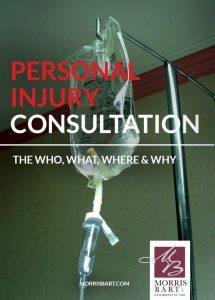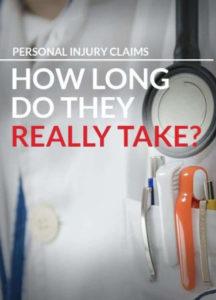
Knowing how to file a personal injury claim after an accident will allow you to seek justice by holding the at-fault party responsible and seeking compensation for your damages. However, this process can be challenging and time-consuming and may require legal help.
Many personal injury victims work with a law firm to handle these claims. That allows them to focus on healing from their injuries while their attorney handles the legal case and financial recovery.
Identifying the At-Fault Party
One of the first things you will need to do is determine who caused your injuries and how. You may already have a good idea, but you will need evidence to prove it before the insurance company pays your claim.
Personal injury cases rely on negligence. You must show the following about the other party:
- They had a specific obligation to you to keep you safe.
- They failed to uphold this obligation.
- This failure caused your accident.
- You suffered harm as a result, either physically, emotionally, or financially.
In many cases, you can walk backward through these elements to determine who acted negligently. For example, you know you were hurt in a car accident. That crash occurred when you were going through an intersection. You had a green light, so the other driver must have had a red light. That driver had an obligation, because of traffic laws, to stop and did not. These elements can support your claim of negligence.
Understanding Their Insurance Policy
Once you have determined who caused your injuries, it is time to look into their insurance coverage. In a car accident, police will likely list this on the accident report. In other cases, such as a slip and fall, dog bite, or pool accident, you may have to gather this information from the at-fault party or documents other officials have filed.
In some cases, the other party’s insurer may contact you to make an offer in the initial days or weeks after the incident. Agreeing is never a good idea until you know what your case will be worth.
Depending on the incident, the liable party’s insurance coverage may be from:
- Their auto policy for car, pedestrian, bicycle, and motorcycle accidents
- Their homeowner’s policy for pool accidents, slip and falls, and dog bite incidents
- A corporate liability policy if they are a corporation or respondeat superior applies
- Another type of policy in some boating accidents
You will need to determine the policy and its coverage before you can move forward with your claim.
For a free legal consultation, call (800) 537-8185
Proving Your Case and Holding the At-Fault Party Liable
You will also need strong evidence to show:
- Fault
- Liability
- Your injuries
- Your claim’s value
The evidence available in a personal injury case can vary greatly depending on the circumstances and type of case. For example, you may not receive an incident report if you fell in a restaurant, but you can check for video evidence. However, having video would be much rarer in dog attack cases.
Proving your case may be more challenging under some circumstances, as well. This includes when you contributed to causing your own injuries or when the at-fault party was a commercial driver. Additional laws apply in these cases and may affect how you move forward with your case.
Valuing Your Damages and Demanding a Fair Settlement
While all parts of building your personal injury claim are essential to getting a fair payout, nothing is more important than ensuring you understand the value of your case. You will need to add the costs and losses you experienced and put a price on your intangible damages, such as pain and suffering and reduced quality of life.
Only once you know the just value of your damages can you demand that the insurer pays you fairly. Without confidently calculating the settlement value of your losses, you cannot negotiate to get the money you want.
Click to contact our personal injury lawyers today
Working with an Attorney on Your Case
Many people hire an attorney to handle their personal injury claims, particularly if they have significant damages. This allows them to focus on healing while their lawyer:
- Investigates what happened
- Gathers evidence to prove fault and liability
- Values their losses
- Demands money from the insurer
- Manages negotiations
- Sues, if necessary, and represents them in court
Deadlines for suing in these cases vary greatly. For example, Louisiana gives victims only one year under La. Civ. Code Art. 3492, while Mississippi offers three, according to Miss. Code Ann. § 15-1-49. Exceptions exist in both states that could mean there’s less time to act.
Discuss Your Legal Options with a Morris Bart, LLC, Attorney for Free Today
You can speak with a personal injury lawyer from the Morris Bart law firm at no cost today. We provide complimentary consultations for victims hurt in negligence accidents. We represent clients across the Gulf South—we have 15 offices across Louisiana, Mississippi, Arkansas, and Alabama.
Call (800) 537-8185 now to talk to our team about filing your personal injury claim.
Questions?Call (800) 537-8185
to find a Morris Bart office near you.





